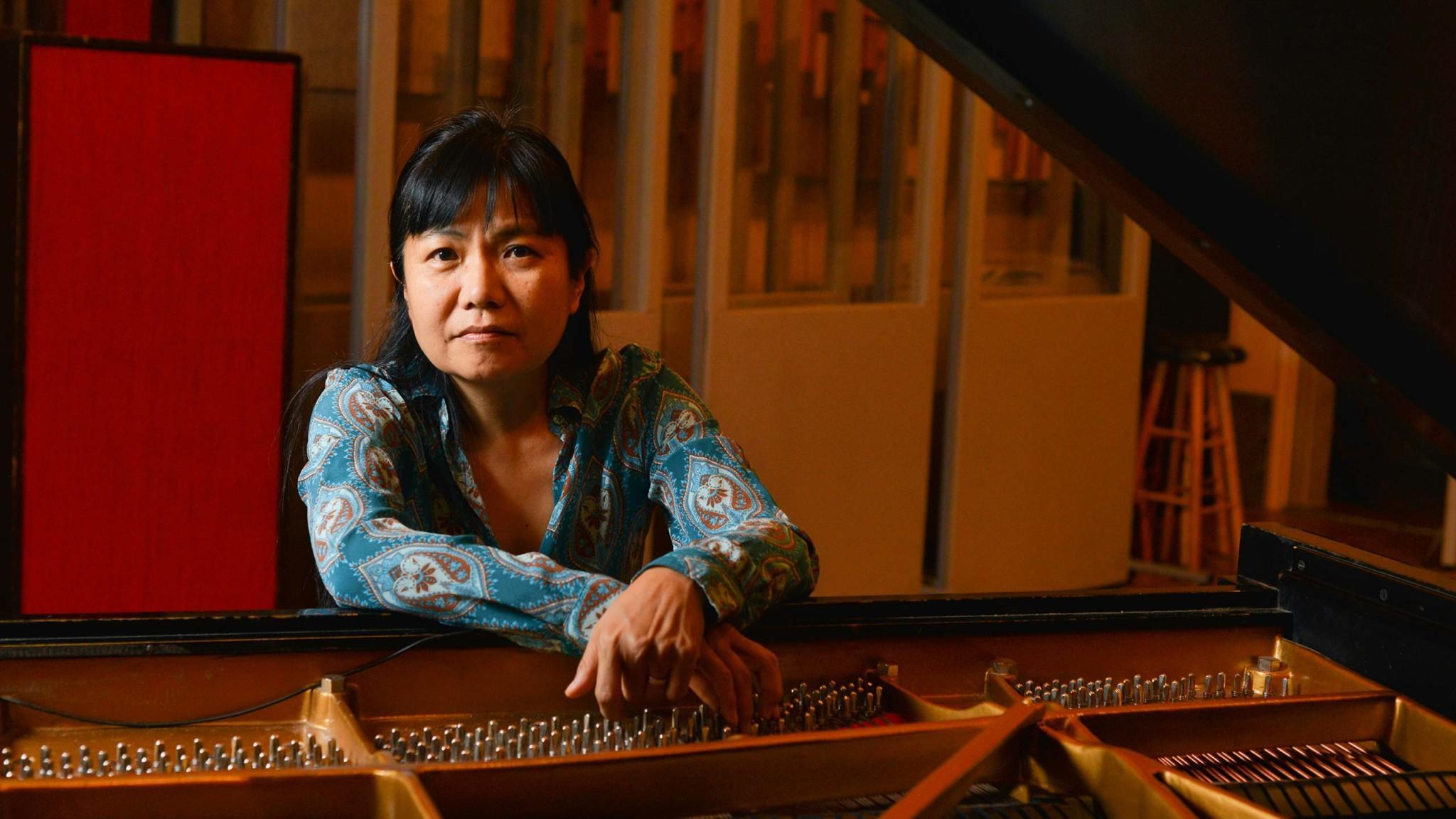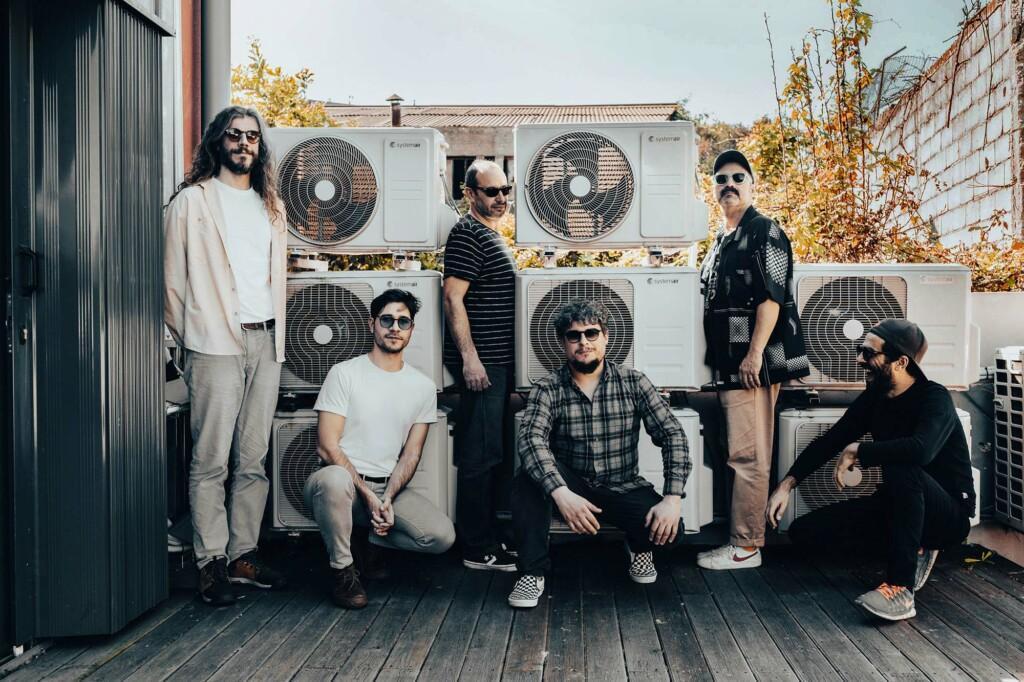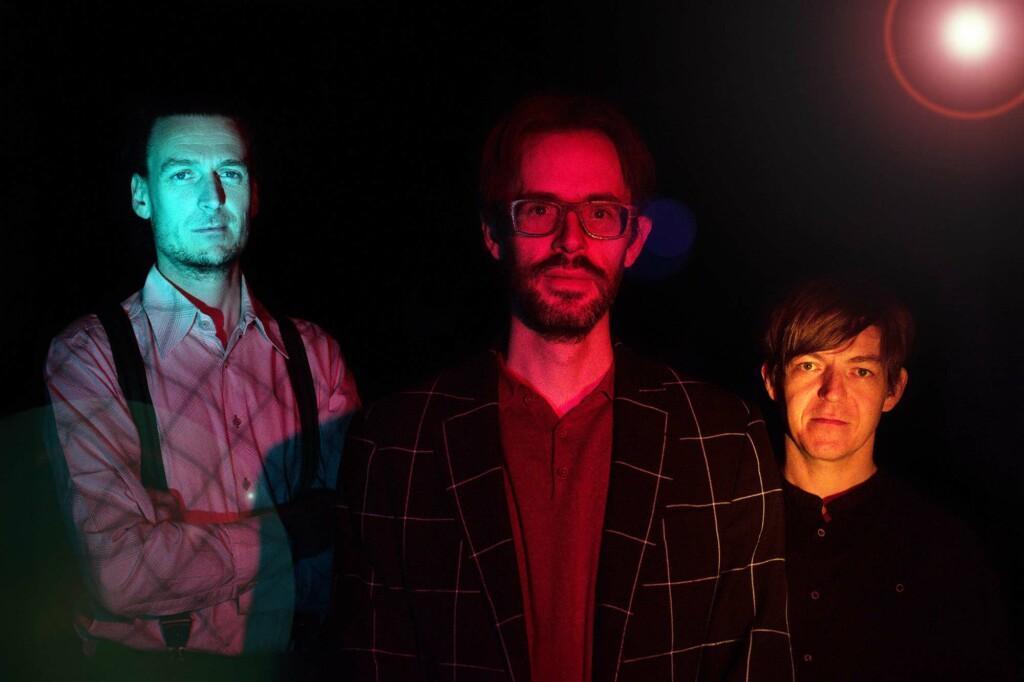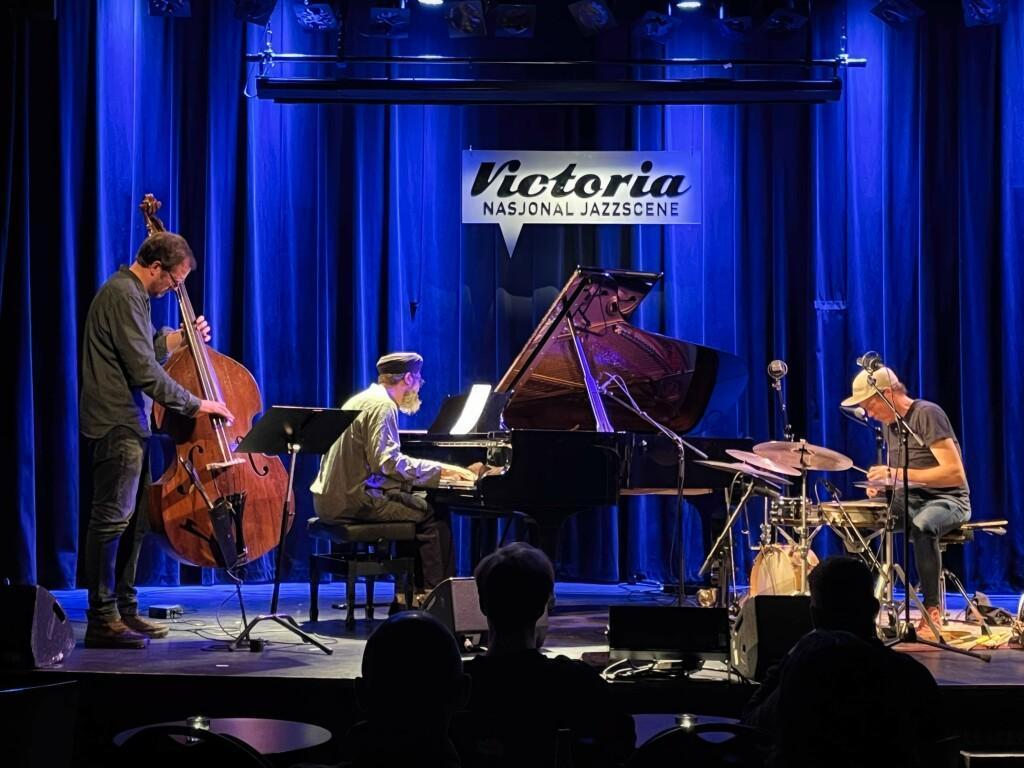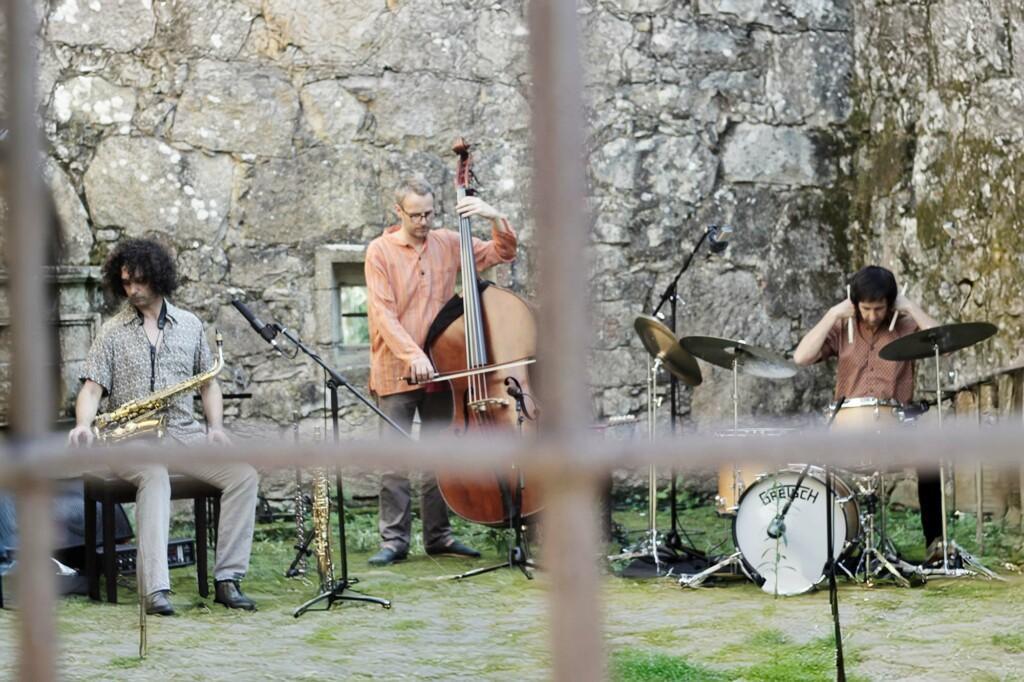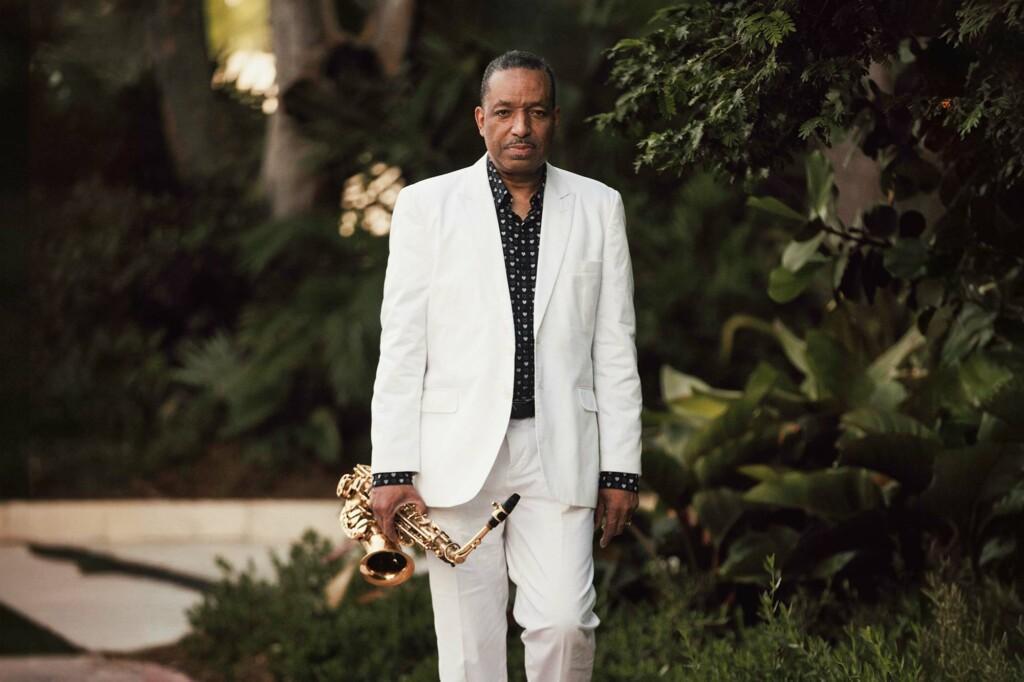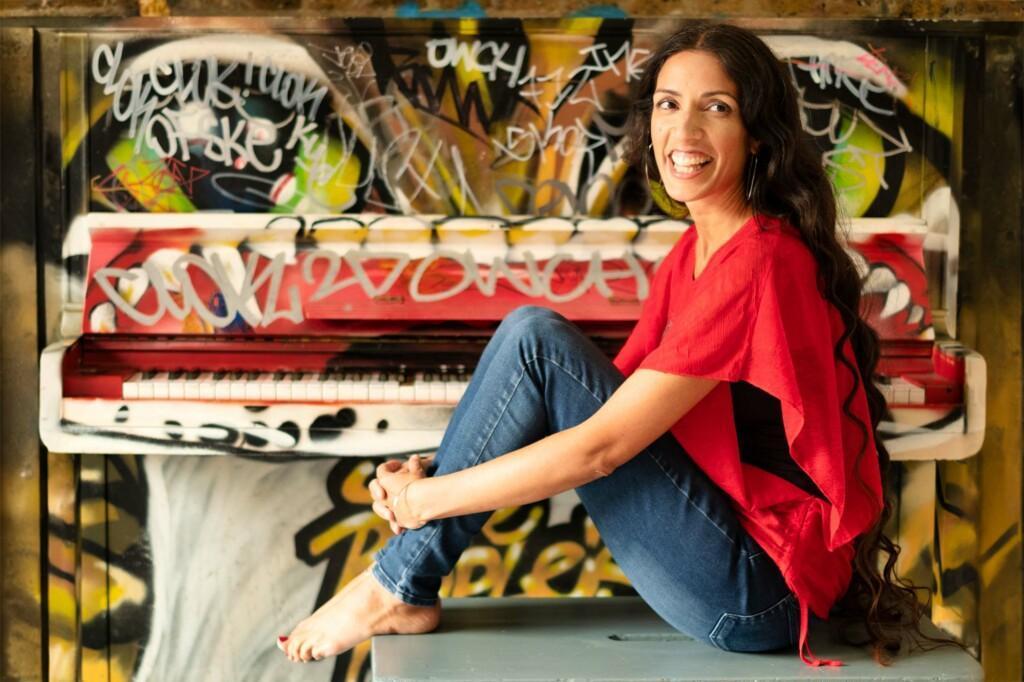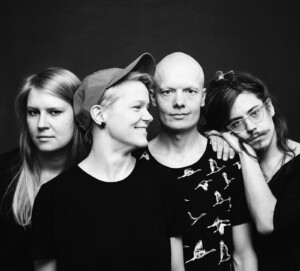What’s happening?
I just returned home from New York City where I recorded my 100th album as a leader. My debut album with Paul Bley came out in 1996, which means I’ve made 100 albums in 26 years! I am so excited about this project. The special all-star band I formed features Ingrid Laubrock, Sara Schoenbeck, Wadada Leo Smith, Natsuki Tamura, Ikue Mori, Brandon Lopez, Tom Rainey, Chris Corsano, and myself. We played the suite I created for this project, “One Hundred Dreams.” I’m planning to release the live recording on December 9, 2022.
As far as the past two years, like many other people, I mostly stayed home and tried to do things I had never done before. I turned my piano room into a small recording studio and made seven albums. Not being able to perform live concerts was really hard on musicians, but I’m grateful to have found a new way to be productive and creative. The experience allowed me to discover and realize many new ideas. I’ve started going on the road again, but I believe my experience during the COVID era has given me new energy and perspectives.
You have had a huge array of ensembles, both small and large, and have released close to 100 albums since 1996. Where does this flow of creativity stem from? Are you a restless spirit? Is composing (and releasing) music almost a way of life?
Making 100 albums as a leader wasn’t something I planned, it just evolved from doing the things I want to do. Each album gave me energy and ideas for the next. For example, when I recorded with my orchestra, it gave me ideas for a solo album. All my projects flow from the same creative river. I feel alive when I’m making music.
Your music spans many genres, blending jazz, contemporary classical, rock, and traditional Japanese music. Still: is there a common thread that runs through all of your music, connects all of your groups – besides you being the composer? Or do you have many different sets of rules for music and music making?
I want to be totally free when I make music. I studied musical theory and composition, but I don’t consciously use that knowledge when I compose. Instead, I follow my heart, voice and ears. I don’t follow any rules. I hate restrictions. My music is not mainstream jazz but I believe it reflects the jazz spirit, which is open and alive.
You’ve studied at the Berklee College of Music and New England Conservatory, both in Boston. What drew you into jazz and improvisation in the first place? Was there a defining moment, a turning point, or was it a slow process?
I wanted to be a jazz pianist at first and studied at Berklee. After graduating I moved back to Japan and worked as a professional musician doing many different things, such as playing in clubs, playing for TV shows, recording, arranging, and writing jazz articles for jazz magazines. Then I started to lose my musical compass. I wasn’t even sure if I liked jazz. I wanted to be away from the scene and find myself again, so I moved back to Boston to study at New England Conservatory, where I worked with great musicians like Paul Bley, Joe Maneri, George Russell, and Jimmy Giuffre. Paul Bley especially revolutionized my music making. I started feeling comfortable with being myself, and confident about following my voice.
What’s going to happen?
After my 100th album comes out in December, I have four more waiting to be released: a new solo album, a duo recording with Otomo Yoshihide, a new KAZE + Ikue Mori release, and the debut album from a new group I’ve been playing with, trio SAN with Taiko Saito and Yuko Oshima. I would also like to make another album with my Tokyo Trio, the ensemble I’ll be playing with at Tampere Jazz. Then I think it will be time to play and record with my Orchestras NYC, Tokyo, Nagoya, Kobe and Berlin again!

